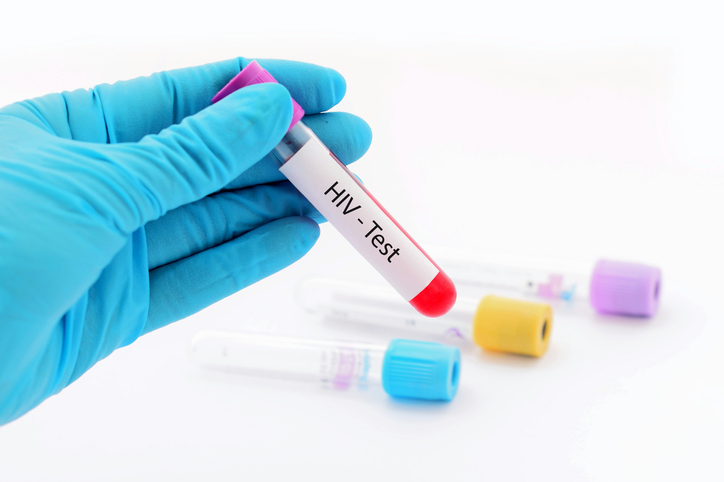
It’s no secret that the Covid-19 pandemic affected care for millions of Americans. Research shows that 41% of patients went without seeking medical care from March through mid-July 2020. One area that was greatly impacted by this? Sexual health.
According to recent data from the Centers for Disease Control and Prevention (CDC), a whopping 2.4 million cases of chlamydia, gonorrhea and syphilis were reported during the wake of the Covid-19 pandemic in 2020. And, unfortunately, early data from the CDC shows that the prevalence of syphilis will only continue to grow.

The Funding Model for Cancer Innovation is Broken — We Can Fix It
Closing cancer health equity gaps require medical breakthroughs made possible by new funding approaches.
Sex is part of people’s lives, both young and old. As such, preventing and treating STIs—including through education on healthy sex and relationships, routine screenings, disease management and prevention—is a crucial component of healthcare for young people.
Prevention starts with education
Interventions to support high-quality information and care related to STIs include sex education programs, testing and treatment services, preventive technologies and vaccines, and supportive and dignified care. Young people deserve accurate and complete sex education in order to avoid STIs and mitigate their effects. Programs should provide students with accurate information about prevention, transmission, symptoms and treatment of STIs.
Undiagnosed STIs increase the risk of poor health outcomes. For example, untreated gonorrhea can lead to major complications, including infertility in women. Gonorrhea can spread into the uterus and fallopian tubes, causing pelvic inflammatory disease (PID). PID can result in scarring of the fallopian tubes, creating a greater risk of pregnancy complications in the future. The good news is that these outcomes are avoidable.
One thing that cannot be overstated is that everyone deserves people-focused, dignified, and supportive care, regardless of age, race, sexual orientation or gender. STI prevention, testing and treatment can be stigmatized topics that young people are often reticent to discuss, but providers and payers have an opportunity to create an environment in which all patients feel respected and cared for.
Can at-home, mail-in testing step in to help?
Young people ages 15 to 24 account for half of all new STIs, but widespread testing may be hindered by confidentiality concerns. Eighteen states in the U.S. currently allow physicians to inform a minor’s parents that they are seeking or receiving STI treatments. It is important that young people do not hesitate to seek medical attention for possible STIs, but it can be difficult to encourage screenings when privacy and discretion aren’t put first.
We need to safeguard confidential care. Policies governing providers and insurance carriers should support young people’s confidentiality when seeking STI-related care. States must take steps to protect the confidentiality of people insured as dependents by ensuring that explanation of benefits forms limit the detail provided for sensitive services such as STI care. To obtain adequate and timely care, youth deserve to have confidence that their healthcare decisions will remain between them and their doctors.
Knowing this, at-home, mail-in STI testing is critical to lowering these growing rates. Early detection and treatment are key to reduce transmission of STIs and related negative health outcomes. However, researchers have found that youth report shame and stigma around seeking in-person STI testing services, particularly among high-risk youth. At-home, mail-in sample collection empowers these youth to test themselves with a convenient, safe and private experience.
What’s next?
Ensuring convenient and private testing and treatment for STIs is critical. The majority of STIs are asymptomatic or have nearly undetectable symptoms, so routine screening is necessary to prevent the development of disease and transmission to additional people. Young people in schools or workplaces with inflexible schedules will have difficulty visiting clinics that keep regular business hours, while those without a car or another convenient, safe and affordable source of transportation may be entirely cut off from care.
According to the World Health Organization, STI self-testing is people centered as it enables individuals to actively participate in their own health, an approach that decreases vulnerability and prevents disease. With that in mind, we need to meet people with the highest quality care wherever they may be.
Photo: jarun011, Getty Images
Dr. Liz Kwo, MD, MBA, MPH, is Chief Commercial Officer at Everly Health, a digital health company expanding access to virtual-first disease prevention, diagnosis, and treatment.
Previously, Dr. Kwo served as Deputy Chief Clinical Officer for Elevance, and has founded several companies, including InfiniteMD (acquired by Consumer Medical) and New Pathway Education and Technology Group (acquired by EIC Education). Dr. Kwo sits on the Board of Directors for Asensus Surgical, Walmart Mexico, Central America, BlueWind Medical, and ChroniSense.
Dr. Kwo is the author of Digital MD: Revolutionizing the Future of Healthcare and host of DigitalMD Podcast. She is a practicing physician at Cambridge Health Alliance Hospital and faculty lecturer at Harvard Medical School. Dr. Kwo is board-certified in Preventive Care and Occupational Medicine and holds a BA in Human Biology from Stanford University, MD from Harvard Medical School, MBA from Harvard Business School, and MPH from Harvard T.H. Chan School of Public Health.
This post appears through the MedCity Influencers program. Anyone can publish their perspective on business and innovation in healthcare on MedCity News through MedCity Influencers. Click here to find out how.











